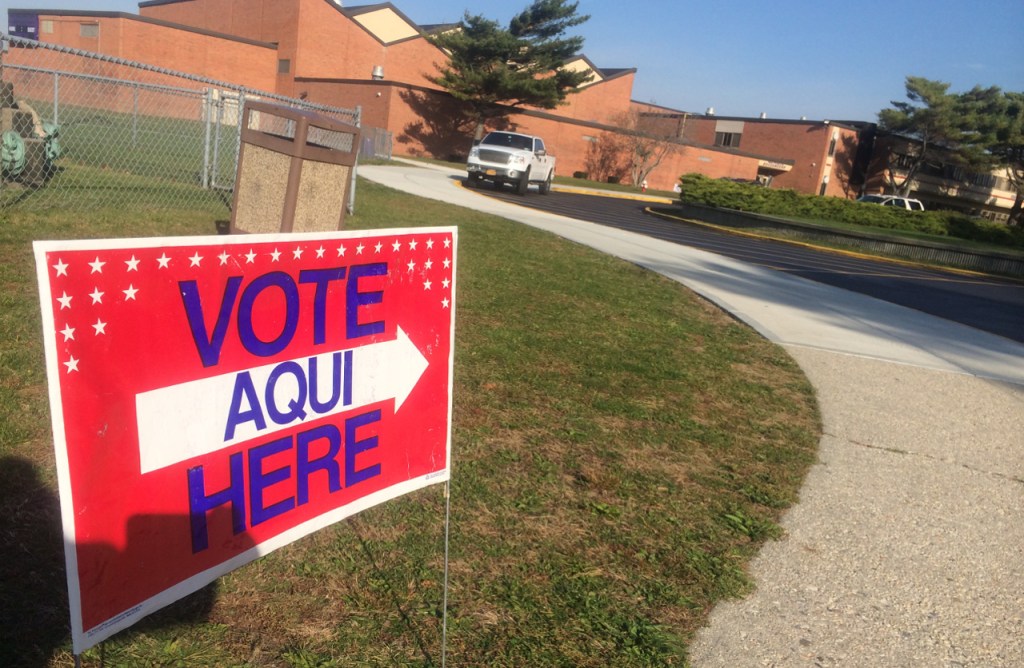Seeing Susan Sarandon exhorting Bernie Sanders supporters in New York City the other day reminded me of the time Jane Fonda and Tom Hayden were the unexpected opening act at a Grateful Dead concert in Oakland, Calif., back in 1979. Fonda told the restless crowd to take home the pamphlet folded on their seat and “not read it” then, but examine it at their leisure. Naturally, I can’t remember what the issue was about, and I doubt that the crowd of Deadheads had much inclination to study it further whatever it was.
But it was very cool to see the then-most hated woman in America (“Hanoi Jane,” the conservatives dubbed her because she’d gone to North Vietnam, but nobody could ever dis her great acting ability) smiling earnestly up there on stage with her shaggy husband, Tom Hayden, who had been one of the founders of the SDS (Students for a Democratic Society) and the lead author of its celebrated left-wing manifesto, The Port Huron Statement. Their celebrity appearance for a worthy cause gave the concert a level of gravitas that it might not otherwise have had. But did it change minds? Certainly not more than the music could.
These days the most hated woman in America is Hillary Clinton. She makes appearances with Katy Perry… Enough said.
Pop culture is not a heavy leg to stand on, as we’ve learned. Most young people these days probably don’t know who Abbie Hoffman was, but the Yippie leader took to the stage while The Who were performing at Woodstock in 1969 to rail against the unfair jailing of White Panther Party’s chairman John Sinclair. Pete Townshend didn’t appreciate the Chicago Eight defendant’s presence and whacked him with his guitar. Hundreds of thousands of people were at the concert, but it’s unlikely that more than a cadre knew what the issue was all about. Most of those watching were just enjoying the show and waiting for the next song.
I’m thinking about all this as New York is about to hold its most significant presidential primary in decades. Just the other day almost 30,000 people filled Washington Square Park for a campaign rally on behalf of the most progressive, left-wing candidate the Democratic Party has fielded since U.S. Sen. George McGovern (D-SD)—and this guy isn’t even a Democrat! It amazes me that we find a 74-year-old Brooklyn native, U.S. Sen. Bernie Sanders (I-VT), crushing his 68-year-old rival, Hillary Clinton, our former U.S. Senator and Secretary of State, by double digits in polls of likely Democratic voters who were born after 1968.
The demographics of this contest are mind-blowing because it seems that the ’60s Generation, at least in New York, may hold the key to who wins the race.
Siena College pollster Steven Greenberg reported on Feb. 8 that “while Democrats under 35 are evenly divided, those 55 and older favor Clinton by 31 points.” But in a new survey released on April 13, Greenberg says, “Sanders has widened his lead among voters under 35 to a whopping 52 points, up from 17 points, while Clinton leads among voters over 55 by 22 points, although that’s down from a 39-point lead with older voters. The younger voters are feeling the ‘Bern’ but the question is will they come out and vote in large numbers, as older voters historically do?”
For the record, Susan Sarandon is a very attractive 69-year-old left-wing movie star. But I digress.
Quinnipiac University Poll’s Assistant Director Maurice Carroll says that Hillary Clinton “leads Sen. Bernie Sanders in many New York demographic groups except the young folks and very liberal voters, but it’s a huge lead among black voters that gives her a comfortable double-digit margin.” Among likely Democratic voters 18 to 44 years old, Sanders has a 55-36 percent advantage over Clinton, his April 12 survey finds, while older voters back Clinton with almost reverse numbers: 62-33 percent for 45 to 64 year olds, and 62-30 percent for those 65 and older.
The ’60s is my g-g-generation. I remember how hippies got “clean for Gene”—U.S. Sen. Eugene McCarthy (D-MN), that is—they cut their long hair and traded blue denim for sweaters and khakis. They quite literally furled their freak flag. They were never as hip as the Yippies and the other radicals who took to the streets outside the Chicago Democratic Convention in 1968, when Mayor Richard Daley unleashed his riot squads on the demonstrators as they chanted that “the whole world is watching” the American violence unfold on television.
The Republicans ate it up, as the Democrats came out of Illinois weak and divided, handcuffing liberal U.S. Sen. Hubert Humphrey and handing the White House to Richard Nixon, who profited mightily from the spectacle by marshaling the “silent majority”—those who comprise the conservative base today—to his side. Voting for the Hump was very uncool. But only those over 21 could even vote at that time—the law didn’t change until March 1971, when Nixon was starting to run for his second term against the “acid, amnesty and abortion” candidate—his supporters’ words for Senator McGovern.
I contemplate that history as I prepare to vote next Tuesday. A colleague in his 20s recently asked me if I would have supported Bernie if I were young as him. It was a hard question to answer without feeling old! Or at least, thinking: Have I gotten this square in my dotage?
“Purity will only get you so far in this world. And politics ain’t beanbag. Nobody knows that better than Hillary Clinton.”
Reportedly, Jack Weinberg, a Free Speech Movement activist in Berkeley, was the first American to say “We don’t trust anybody over 30.” By the time the slogan reached Yippie leader Jerry Rubin in New York it was: “Don’t trust anyone over 30.” In 1968 came the countercultural cult film, Wild in the Streets, featuring Christopher Jones, Hal Holbrook and, yes, Shelley Winters, which turned the expression on its head.
Jones played a rock star and revolutionary wannabe named Max Frost (his estranged mom is Shelley Winters), who sings at a rally for a Kennedy-like candidate named Johnny Fergus (Hal Holbrook). His campaign platform is to lower the voting age from 21 to 18. But before Frost is done performing, he’s taken liberties with the agenda and improvised a new song, “Fourteen Or Fight!”
The rest of the movie is about the chaos that ensues as teenagers take it to the streets across the nation. The “old guard” is anybody over 40; 30 becomes the new mandatory retirement age, and those over 35 are sent to “re-education camps” where they’re dosed with LSD. But things actually turn out pretty groovy around the globe, as the youth revolution spreads. As Frost puts it, after he’s withdrawn the U.S. military from other countries and shipped surplus grain to starving countries for free, he’s become the leader of “the most truly hedonistic society the world has ever known.” But, dum da dum dum, there’s a backlash: At the end of the movie, Frost is confronted by kids 10 and under who want to overthrow all the old farts like him.
Once, in San Francisco, I attended a film screening to benefit striking coal miners in Harlan County, Kentucky. To get inside the door you had to thread between two competing groups of protesters, about eight or so Trotskyites and the same number of Maoists, who were wearing white shirts and ties, as I recall. They were actually protesting against each other’s ideological take on how to foment working-class revolution.
They were not that keen on supporting trade unions, it turned out. I think about them now as I recall how the “Bernie Bros” regard the “Hillary Hoes.” With righteous scorn. Admittedly, she is one heck of a flawed candidate—and why she lets those Goldman Sachs speeches hang around her neck like a $675,000 albatross is beyond me.
But I do know who I will support: someone I believe will be the most effective president for the tough times ahead. And I take comfort knowing that I’m not alone, that I’m not forsaking all my “New York values,” from others who’ve gone down this road before me.
Take former U.S. Rep. Barney Frank (D-Mass.), the great liberal champion of the Democratic Party, who backs Clinton but says of her opponent in Politico: “Decades ago, Sanders made a principled choice to play a valuable part in our politics—the outsider within the system.” But the former Massachusetts Congressman observed in an interview in Slate: “Bernie Sanders has been in Congress for 25 years with little to show for it in terms of his accomplishments and that’s because of the role he stakes out.”
Boy, did Sanders’ “Bros” not appreciate Frank’s words. Here’s the Barney Frank rule, as he spelled it out in his recent memoir: “If you care deeply about an issue, and are engaged in group activity on its behalf that is fun and inspiring and heightens your sense of solidarity with others, you are almost certainly not doing your cause any good.”
Purity will only get you so far in this world. And politics ain’t beanbag. Nobody knows that better than Hillary Clinton.



























